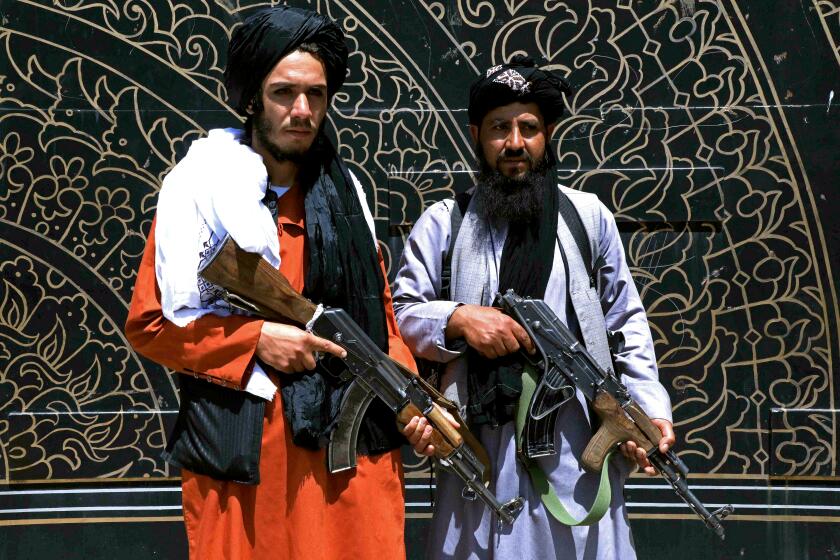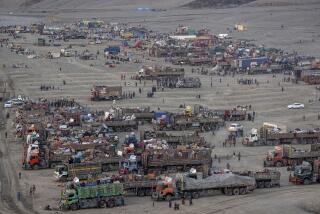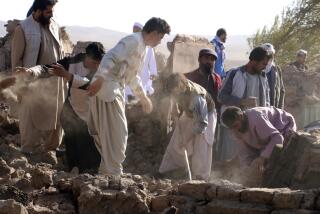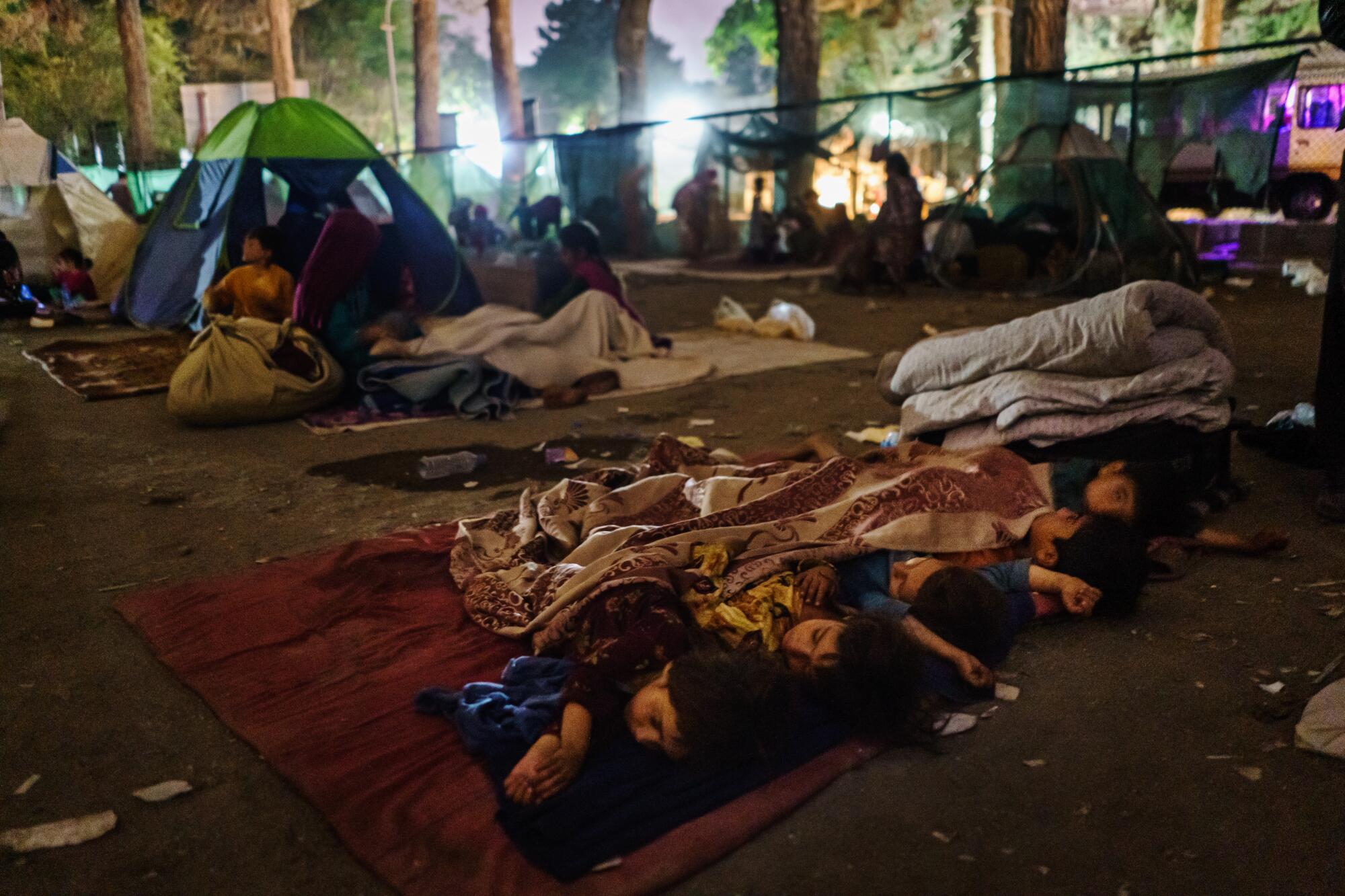
KABUL, Afghanistan — If desperation had a face, it might resemble that of Nooria, a widowed mother of seven from the northern Afghan city of Kunduz.
The Taliban in recent days overran Kunduz, one of a succession of provincial capitals to fall to the Islamist militant group as it swiftly encircles the nation’s capital, Kabul. For Nooria, who did not want her family name used, the fighting announced itself when a rocket crashed into her home, badly injuring one of her sons.
The temporary haven they found is far from a safe one: a Kabul park, Hasa-e-Awal, which has become a sprawling makeshift camp for war-displaced people from across Afghanistan. But with Taliban fighters only a few dozen miles from the city by nightfall Saturday, Kabul itself is in peril.
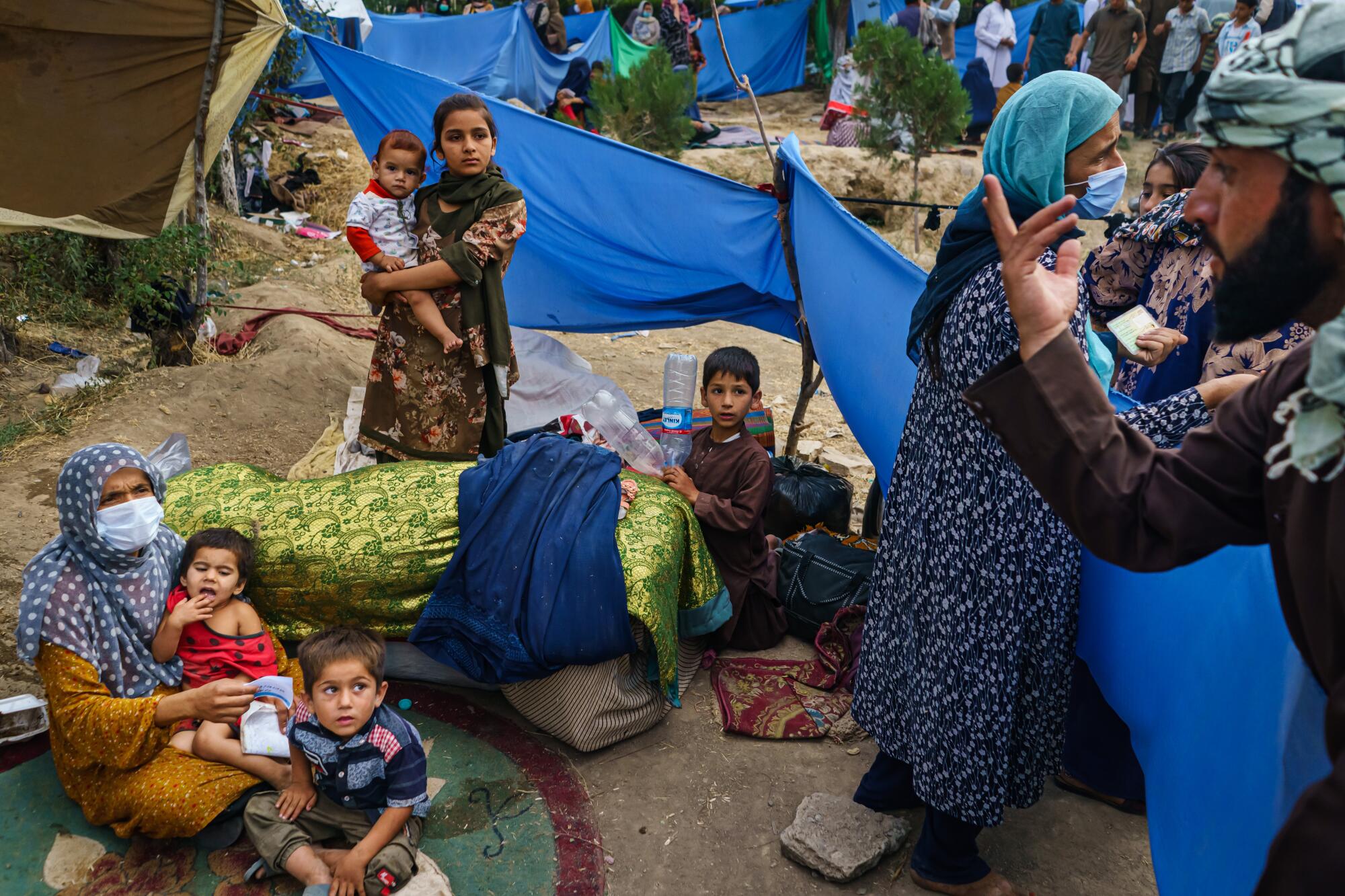
“My heart is beating with fear at the thought of the Taliban,” said Nooria, 35, who ekes out a living as a house cleaner. When the militant movement last ruled Afghanistan, a five-year reign that ended in 2001, widows like her faced a brutal fate, banned from supporting themselves except by begging, burqa-clad, in the street.
If the fighters come here, she said, she and her children would run away again, but she did not know where.
Taliban capture of northern city of Mazar-i-Sharif is a blow to the embattled Afghan government.
As huge swaths of Afghan territory have fallen to the Taliban over the last week, largely without resistance from government forces, those who were driven from their homes converged on the capital from north, south and west — fleeing by any means of transport available, carrying what they could. More than a quarter-million Afghans have become refugees in their own country just since May, the United Nations said.
With the flood of arrivals, Kabul’s few green spaces have been transformed into a mosaic of colorful patterned fabric hung from tree branches, clasped with bands normally used to secure men’s trousers.
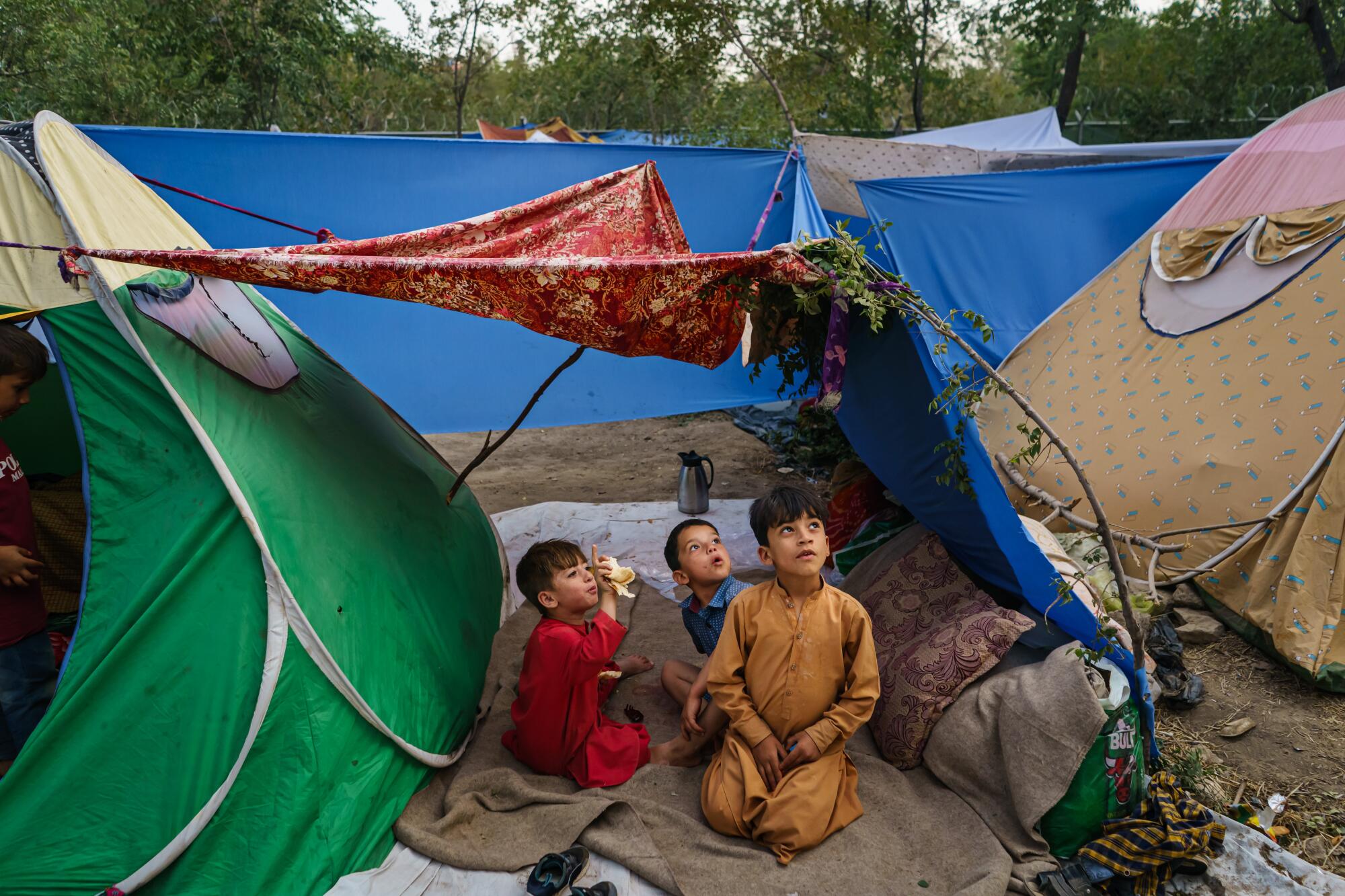
The only material signs of comfort are rugs, plastic mats and blankets to cover the bare ground. Poignantly, people remove their shoes before entering these improvised shelters, just as they would in their homes.
This particular camp sprang up only six days ago, say its unofficial organizers, but already more than 200 families have settled in. No government aid has come, they say, but local businesses and good Samaritans living nearby have taken pity on those arriving, donating what food, clothing and supplies they can spare.
Often, the displaced families cluster near others from their hometowns; here their children tumble together like puppies. As Nooria spoke, she soothed someone else’s crying child.
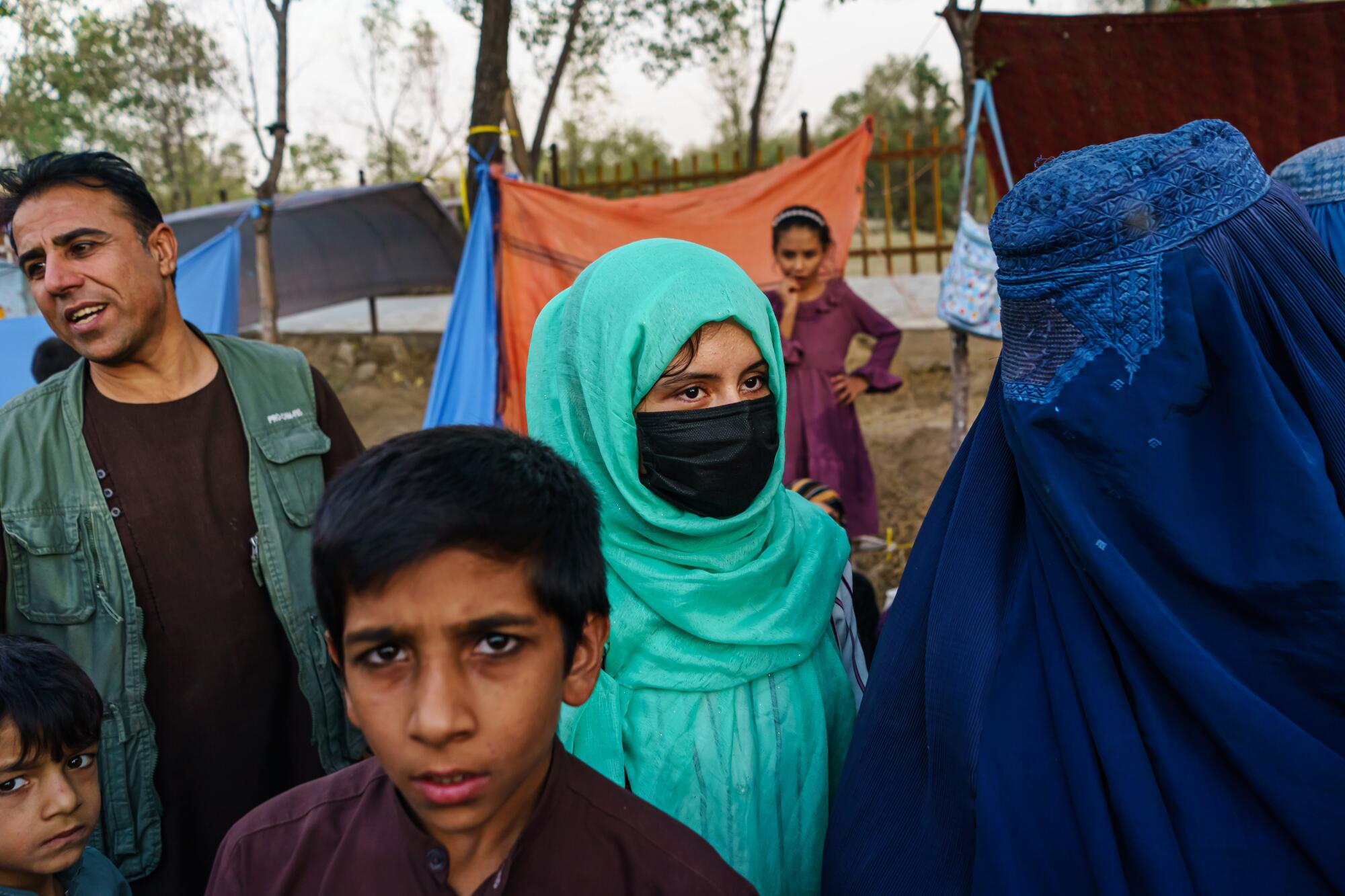
The lives they left behind were ordinary ones. Nooria’s neighbors in the park include Mohammad Massoud and his family of eight; in Kunduz, he had a little sandal shop.
Nearby is another Kunduz couple: grocery owner Mohammad Taher, 52, and his wife, Zakera Hamidiyan, 35, sheltering with their 19-year-old daughter, Asma. Their experience with the Taliban was terrifyingly intimate: The fighters pushed their way into the family’s home and occupied it, drawing fire from the city’s defenders. An incoming salvo left Asma with a burn that still marks her face.
Some who suddenly found themselves homeless amid the violence had recently made bold efforts to better their lives. Zainab Ahmadi, a 27-year-old in a pink head covering, joined the local police force seven months ago in her home province of Takhar, in the country’s northeast. The pay was better than at her old job as a cook, but her boss sent her and the other officers home when the fighting started.
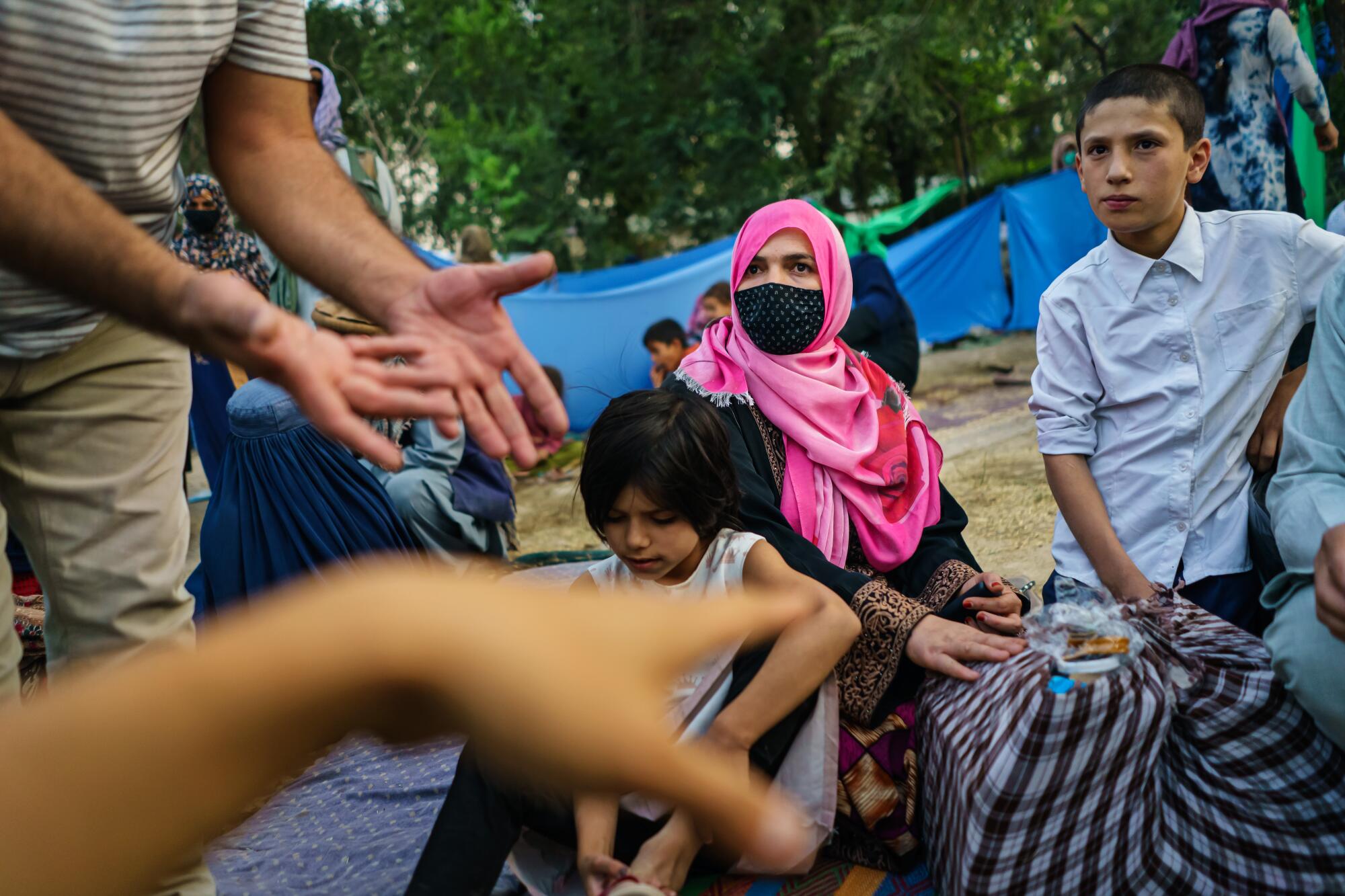
In Kabul, her ambitions are modest. She and her husband hope she might be able to collect the last month’s government salary still due her: 8,000 afghanis, the equivalent of about $100. With that money, they could try to start over here, she said, but that was yet another risk; it seemed no safer than the life they left behind.
In another park, in the Shahr-e-Naw district near the city center, minibuses continued to arrive long into the night. By the glow of cellphone screens, weary travelers were ushered into a playground area where hundreds of others had already bedded down for the night.
A 36-year-old farmer named Rajan and his family were left homeless when a rocket wrecked their home in Kunduz. His children, ages 9 months to 9 years, slept on the hard ground nearby, covered by a blanket, still wearing the clothes in which they fled.
“What can I do?” he said, gesturing toward them. “This is all I have.”
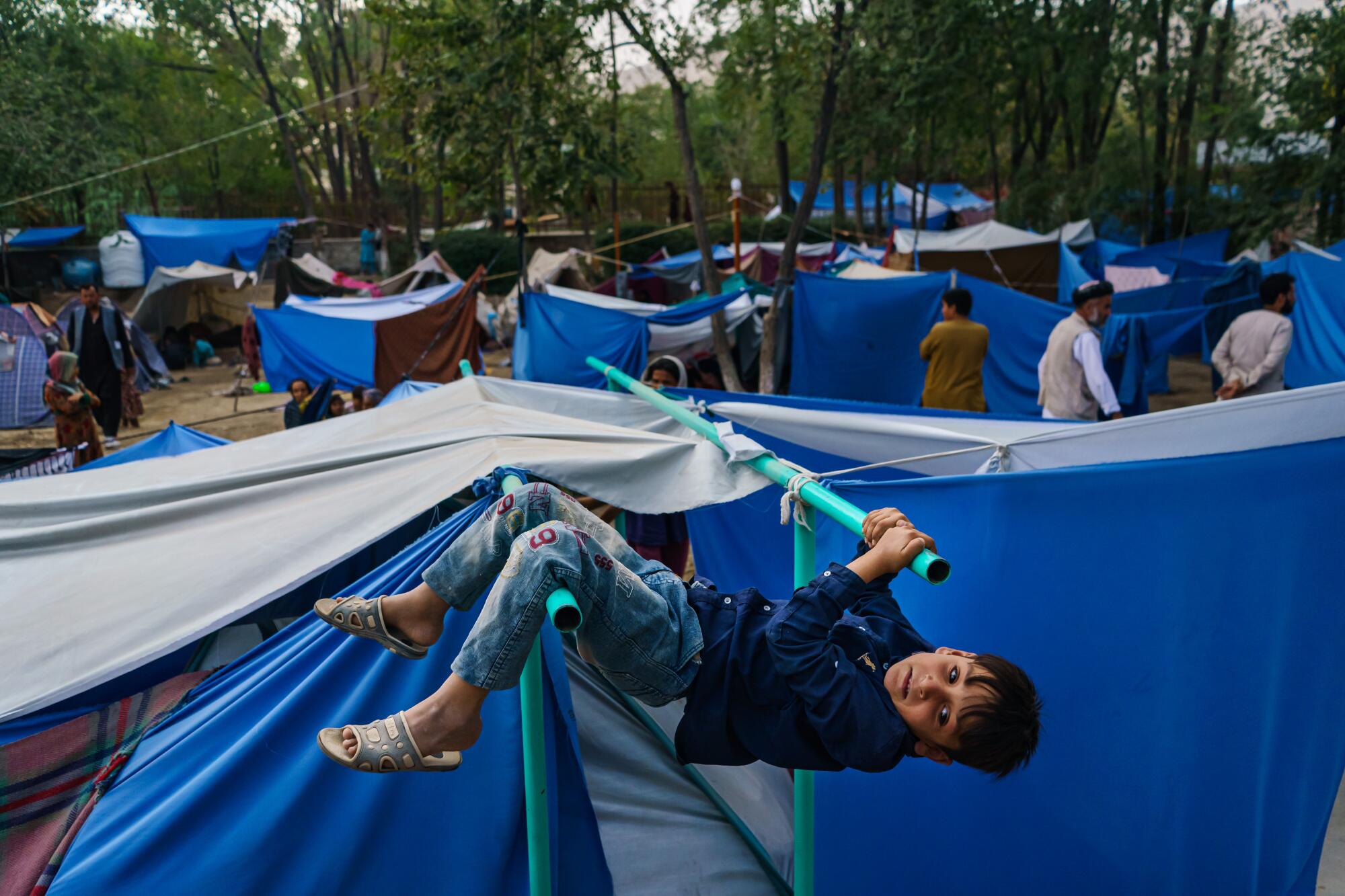
Staff writer Laura King contributed to this report from Washington.
More to Read
Sign up for Essential California
The most important California stories and recommendations in your inbox every morning.
You may occasionally receive promotional content from the Los Angeles Times.
